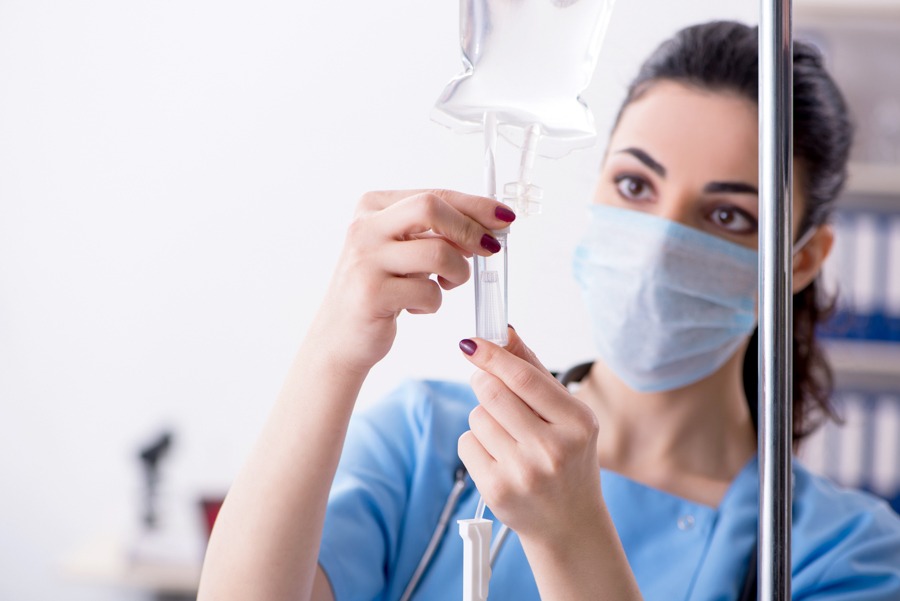Ibogaine, a naturally occurring psychoactive substance, has been making waves as a potential treatment for addiction and other mental health challenges. Derived from the root bark of the African shrub Tabernanthe iboga, it has a long history of traditional use in spiritual and healing practices.
In recent decades, it has gained attention in modern medicine for its unique use in interrupting addiction cycles and promoting introspection. But what exactly is ibogaine, and how does it work?
Understanding Ibogaine: An Overview
Ibogaine is classified as a psychoactive alkaloid, primarily found in the plant Tabernanthe iboga. While its primary use today is for addiction treatment, it has also been used historically in rituals and spiritual ceremonies. Unlike many other substances used for treatment purposes, ibogaine can induce an intense psychedelic experience that can last 12 to 24 hours. It is commonly described as a combination of dream-like visions and deep introspection.
What sets ibogaine apart is its use as a holistic treatment for addiction. It may also be used to treat various mental health disorders, including post-traumatic stress disorder (PTSD). But as of late 2024, research has only just begun on these uses and their applicability.
The Origins of Ibogaine: Traditional Uses
Ibogaine’s roots trace back to the continent of Africa, where it has been used for centuries by the Bwiti people. In traditional Bwiti practices, ibogaine plays a central role in spiritual initiation rites and healing ceremonies.
The ceremonial use of ibogaine can be deeply symbolic, often involving music, chanting, and storytelling. These rituals are designed to induce profound self-awareness and spiritual growth, with participants reporting life-changing revelations. The traditional use of ibogaine laid the foundation for its modern application in addiction treatment.
Ibogaine as Addiction Treatment
One of the most well-known applications of ibogaine is its use in treating substance use disorders, particularly opioid addiction. Unlike conventional detox methods, ibogaine offers a holistic approach that addresses both physical and psychological dependence.
How Ibogaine Can Help:
- Reducing Withdrawal Symptoms: Ibogaine can alleviate the painful symptoms of opioid withdrawal, often described as resetting the body’s “addiction clock.”
- Craving Reduction: Many users report a significant decrease in cravings after an ibogaine session, giving them a head start in their recovery journey.
- Emotional Healing: The introspective state induced by ibogaine allows individuals to confront the emotional roots of their addiction, which can foster long-term healing.
While ibogaine is not a cure for addiction, it offers a powerful tool for breaking the cycle and initiating recovery. People report that the experience can help them work through their addiction.
The Potential Benefits of Ibogaine Therapy
The potential benefits of ibogaine can extend beyond addiction treatment. Here are some of its most notable advantages:
- Holistic Healing: Ibogaine can work with the mind, body, and spirit, making it a comprehensive therapeutic option.
- Rapid Results: Unlike traditional treatments that take weeks or months, ibogaine’s effects are reported to be felt after just one session.
- Enhanced Self-Awareness: The psychedelic experience can foster deep introspection, helping individuals understand their behaviors and emotions.
- Potential for Mental Health Support: Preliminary research suggests that ibogaine may be effective in treating depression, PTSD, and anxiety.
Risks and Side Effects of Using Ibogaine

But while ibogaine offers promising benefits, it is not without risks. There has been limited research on ibogaine as a formal medical treatment, and it is a Schedule I illegal substance in the United States. Most places that distribute and facilitate ibogaine use are located outside of the United States.
Using the substance can have serious side effects, particularly for individuals with underlying health conditions. Medical screening and professional supervision are essential to minimize these dangers.
Common Side Effects:
- Nausea and vomiting
- Dizziness and fatigue
- Hallucinations and vivid dreams
Serious Risks:
- Cardiac Complications: Ibogaine can affect heart rhythm, posing a risk for those with pre-existing heart conditions.
- Neurological Effects: High doses may lead to neurotoxicity or seizures in some people.
- Unregulated Use: In regions where ibogaine is not medically supervised, the lack of professional oversight increases risks of poor health effects.
As with many psychotropic substances previously used for ritualistic purposes (including peyote and ayahuasca), ibogaine may be used or advertised for holistic treatment by people with insufficient knowledge of the substance. Some proprietors of ibogaine clinics have been accused of cultural appropriation and disrespect of the original use of ibogaine. However, this may not be the case for every clinic associated with ibogaine treatment.
What to Expect During an Ibogaine Experience
An ibogaine session typically involves several stages, each with distinct effects:
- Onset (1-2 hours): Participants may feel a tingling sensation or lightheadedness as the substance begins to take effect.
- Psychedelic Phase (4-6 hours): Vivid, dream-like visions dominate this stage, often accompanied by profound emotional insights.
- Introspective Phase (8-12 hours): The visions fade, leaving a state of deep reflection and clarity.
- Recovery Phase: Physical symptoms, such as nausea or fatigue, may linger. But the individual may report feeling rejuvenated in the following days.
Keep in mind that this may not reflect the experience of everyone that undergoes ibogaine treatment. Supervision by medical professionals and those that are knowledgeable about the potential side effects of ibogaine is necessary to ensure safe treatment throughout the process.
Controversies Around Ibogaine Use
Despite its potential, ibogaine remains controversial due to its risks, legal status, and limited scientific evidence. Critics argue that more research is needed to fully understand its effects and safety profile. Proponents, however, believe that ibogaine offers a unique and powerful tool for recovery, particularly for those who have not found success with traditional treatments.
The Future of Ibogaine Treatment
Challenges remain regarding the safety and legality of ibogaine, as it is not yet widely approved for clinical use in many countries. Its psychoactive properties, when administered improperly, can lead to serious side effects, including heart issues and neurotoxicity.
Ongoing research into the drug’s safety profile, optimal dosages, and long-term outcomes is crucial to understanding how to mitigate these risks. As these studies progress, it is likely that medical regulations and approval processes will evolve.
If proven safe and effective through further research, ibogaine might be incorporated into mainstream addiction treatment centers and healthcare systems. Greater acceptance of alternative medicine, alongside advancements in personalized care, could also lead to greater accessibility and affordability of ibogaine-based therapy. This could offer hope to those struggling with addiction, and present new options to people unable to access conventional methods of addiction treatment.
The Value of Holistic Treatment for Addiction

Many people are initially attracted to ibogaine because it can speak to a person’s addiction in a holistic manner. A reaction against a purely clinical or medical approach to addiction, holistic addiction treatment works to address addiction within the person as a whole. It addresses not just the physical symptoms of addiction, but also the emotional, mental, and spiritual aspects of recovery. It works to heal the entire person from addiction in a comprehensive way.
Holistic treatment for addiction can also make a very big difference for people with a dual diagnosis, meaning that they have a mental illness they’re dealing with along with addiction. Holistic treatment can help with restoring overall wellness and even restoring physical strength back to the individual. Dual diagnosis treatment is designed to take the individual’s mental illness into account. If a person doesn’t feel like they need addictive substances to self-medicate their mental health symptoms, this can drastically reduce the risk of relapse.
The exact look of holistic treatment differs for each person. Holistic treatment still uses conventional methods of treatment, such as individual therapy and aftercare planning. But it may also utilize alternative treatments like nutrition, exercise, mindfulness, and yoga, fostering long-term healing and personal growth. It can help the person build up skills for avoiding relapse and/or harmful patterns that initially led them to addiction.
Holistic addiction treatment often emphasizes individualized care, recognizing that each person’s experience with addiction is unique. At Principles Recovery, we work to create individualized treatment plans that speak to each individual person. By taking this approach, holistic programs can help a person leave treatment more equipped to handle the challenges of early sobriety.
Heal From Addiction at Principles Recovery
At Principles Recovery, we understand the complexities of addiction and the challenges of recovery. While ibogaine is not part of our treatment offerings, we provide a range of evidence-based therapies designed to help individuals overcome substance use disorders and reclaim their lives. Our compassionate team is here to support you every step of the way.
Reach out today to learn more about our treatment programs and take the first step toward lasting recovery.
